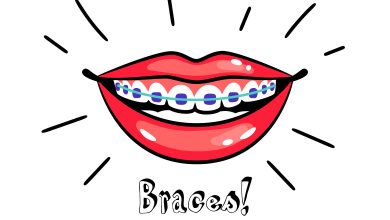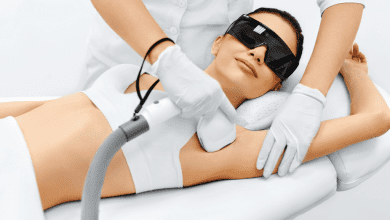5 Things You Need to Know Before Getting Braces for Adults

Have you recently gained interest in braces? Do you think it’s weird for adults to wear braces? It’s common for adults with crooked teeth, overbite, or underbite to consider using braces to solve the problem. Most adults with those problems tend to believe that braces are for kids or teenagers and since they have gone past that age they think that they wouldn’t be able to use them anymore. If you think like most adults, then you are wrong.
There recently has been an upward trend in the number of adults using braces yearly and the statistics show that over a million adults use them yearly. Some to address or fix cosmetic problems and others for medical reasons. Whatever your reasons are for needing braces, wisdom demands that you know what you are getting into rather than diving into it without knowing what it entails. Additionally, knowing what you are getting into beforehand helps in preparing you for what’s to come. I’m an adult and I understand what it’s like to wear braces as one, that’s why I prepared this blog post for people like you and me. In this blog post, I’ll be telling you 5 things you need to know before getting braces for adults.
5 things you must know before getting braces for adults
1. You might experience a bit of a lisp
Most adults who undergo orthodontic treatment aren’t aware of this and when they eventually speak for the first time, they become shocked and can’t seem to place their heads around what’s going on. A lisp is a speech defect where the “s” sound is pronounced as “the”. The reason why you may experience this effect is simply that your mouth isn’t used to the feel of the braces so it may alter the way you speak for a short while. It may seem uncomfortable or even embarrassing at first but with time you’ll get used to it and when that time comes you’ll no longer have trouble speaking properly with the braces in your mouth.
Practice makes perfect and there’s no better way to get better at speaking with the braces on than to practice pronunciation and speaking in general. If you do that consistently, you’ll get better at it with time.
2. Expect food to get stuck in your braces
The same way the braces affect your speech, they are also going to affect the relationship between your teeth and the food you’ll be eating throughout the time you’ll have the braces on. Eating may become tedious for you because each time you finish eating you’ll have to focus on properly cleaning your teeth and braces to prevent food particles from being stuck within.
You can prepare for that by always carrying a compact floss and travel-sized toothbrush with you so that you’ll be able to remove stray particles whenever you notice them.
3. You won’t have to wear them forever
Because some adults don’t know how long they are going to be needing braces, they get scared and stop themselves from wearing one because they believe they might have to wear one forever and if that’s the case they might as well stay the way they are. In reality, you are not going to be wearing the braces for long, rather you’ll be wearing them for a short time although the duration depends on a variety of factors such as the style you choose and the severity of your problem.
The average time you’ll spend wearing adult braces is between 14-26 months.
4. The cost
Orthodontists in Bondi Junction or dental braces cost around $4000-$6000. If you consider that too expensive, then there are several plans you can choose to make the payment process much easier for you.
In some cases, if you aren’t getting the braces for cosmetic reasons then you may not have to pay a huge portion of the cost. That means people having problems with speech or those with oral issues can qualify and their costs covered.
5. There are several options to choose from
There are different types of braces and depending on the situation you may have the choice to select or choose the kind of brace you want. Some adults prefer the standard metal braces maybe you just might want that too. The great thing about the braces of our time is that they are much smaller than they used to be.
Asides from metal braces, you could also go for porcelain braces. The difference here is porcelain braces are sheerer and they are not as effective as metal braces but if you don’t want or like metal braces then you can with them.
You can also have clear braces if both the porcelain and metal braces won’t do. The major difference between the types mentioned so far is the material used for its production. So before getting your braces on do well to do your research to determine the one you’ll be comfortable in.





